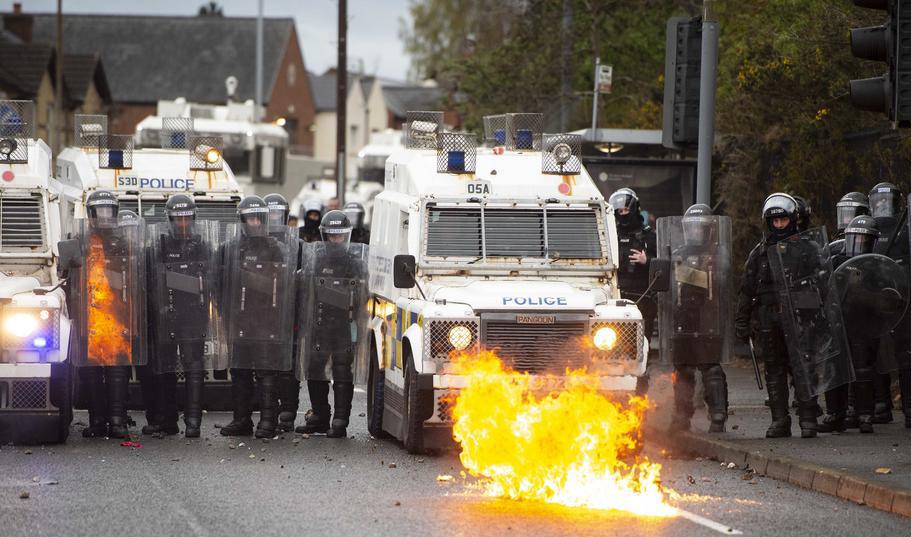
2 minute read
Crossing the Brexit minefield
CorporateDispatchPro
Crossing the Brexit minefield
As spray paint sprawls across public walls and store shutters in Belfast, pronouncing the death of the Good Friday Agreement, the worst fears of the Brexit pact are coming back to haunt decision-makers in London and Brussels.
Worrying images of burning buses, destructive riots and police shootings in Londonderry, Carrickfergus, and other settlements are fast becoming the undesired posters of post-Brexit Northern Ireland. Young people from Unionist communities born long after the end of The Troubles have been hurling insults as well as petrol bombs at authorities almost every night for over two weeks.
Tensions have been simmering since June last year after thousands of people breached Covid-19 rules to attend the funeral of a former IRA leader. But the UK-EU Deal proved to be the straw that broke the camel’s back.
Wary of raising a hard border between Northern Ireland and the Republic, the UK government and the European Union agreed to draw a border in the Irish Sea, effectively cutting the island from Great Britain and plunging Belfast into a nightmare isolationist scenario, as far as loyalists are concerned.
NI leaders are calling on the British government to review the agreement and negotiate a more satisfactory outcome with the EU. Meanwhile, calls for a revision of the pact are also coming from the business community in the UK. The British Chambers of Commerce expressed serious concern about the negative effects trade barriers are having on UK exporters.




CorporateDispatchPro
Trade with Europe took a huge blow in January but bounced back the following month as businesses on both sides started to come to terms with the new requirements and paperwork. Investors, however, are anxious about the long-term implications of the arrangement which could decrease trade in both directions by as much as 15 per cent, according to some economic forecasts.
Formal talks between the UK and the EU are not expected to restart any time soon. Leaders on both sides are primarily preoccupied with the Covid-19 outbreak in their own countries, and the spasmodic nature of the process that produced the current agreement on Christmas Eve may leave little appetite to reopen discussions in the short term.
The first months of the new EU-UK relationship have been largely inconvenient but manageable. Unrest in Northern Ireland and unease among businesses, however, suggest that the 2020 Trade and Cooperation Agreement may only be the first volume in a series of future arrangements.











